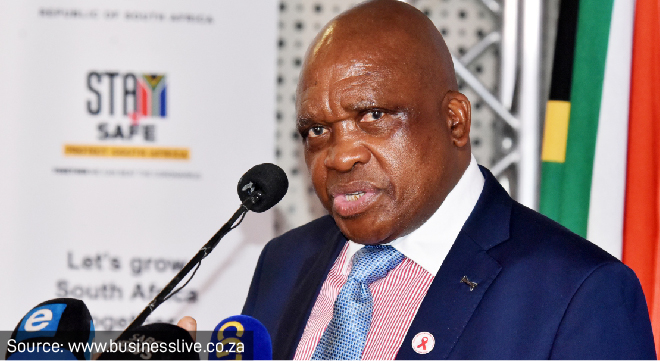Health Minister Dr Joe Phaahla has once again indicated that National Health Insurance (NHI) will be phased in based on the funds available.
Earlier this month, Dr Phaahla told a virtual event hosted by Momentum Health Solutions that the government planned to implement NHI incrementally and gradually phase out the role medical schemes play in funding private healthcare services.
Read: NHI will be implemented gradually, says Health Minister
In response to a question from Freedom Front Plus MP Philip van Staden, Dr Phaahla said it “is important to recognise that reforms of the magnitude anticipated in the NHI Bill need to be phased in over time”.
For this reason, he said section 57(1)(b) of the Bill states that NHI “must be gradually phased in using a progressive and programmatic approach based on financial resource availability”.
He said sub-section 57(2) of the NHI Bill states that Phase 1 of implementing NHI will include:
- Initiatives to strengthen the health system;
- The development of NHI legislation and amendments to other legislation;
- Initiatives to establish institutions that must be the foundation for a fully functional fund; and
- The purchasing of personal healthcare services for vulnerable groups, such as children, women, people with disabilities and the elderly.
Dr Phaahla said the resources currently available to establish NHI consisted of “the current resources of the entire public and private health sectors”.
“The capacity to roll out the reforms described in the NHI Bill starts with the commitment and stewardship of Parliament to improving the health system for all,” he said.
The Minister of Public Service and Administration has approved a special transitional NHI branch in the Department of Health to serve as the incubator for the NHI Fund.
“The five clusters, and the nucleus of 44 new posts to be added to the existing 40 posts, are funded through earmarked funding from National Treasury. The reorganisation of the branch and the preparations for the advertisement of the new posts have commenced.”
State of public healthcare facilities
Asked whether state hospitals and clinics, with their shortage of doctors, nurses, medicine, equipment and infrastructure challenges, provided a favourable environment for the implementation of NHI, he said, “the state of public hospitals and clinics varies widely, from immaculate to extremely poor”.
Dr Phaahla said there was a quality improvement programme in 19 locations covering more than 100 healthcare establishments.
He said the health system has a shortage of professional personnel, and the public sector did not have the funds to recruit additional personnel.
“It is for this reason that the NHI envisages a ‘universal’ system for everyone in the country where the NHI Fund purchases services from both public and private providers,” he said.



